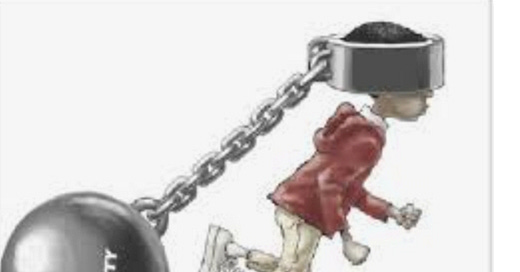I knew this person in school who thought I was extravagant just because I always had airtime and could take Keke whenever I needed to move around. She’d say things like,
“So you can’t walk from here to class? Your faculty no even far.”
And I’d always tell her,
“I could walk… but I’d get there sweaty, tired, and unable to concentrate.”
Her own class was even farther, but she walked.
If I ever mentioned I wanted to buy something, even something small, she’d say,
“Ahh, you’re rich o.”
It used to bother me, but I didn’t understand why.
The thing is, this friend wasn’t poor. She could afford those things just like me.
But to her, spending that way felt wasteful.
I blame the country for the poverty.
But for the mentality? Maybe not entirely.
A bag of rice is almost a whole month’s minimum wage.
Basic healthcare, education, and even clean water come with unpredictable, painful costs.
Electricity isn’t constant, so we buy fuel or pay for alternatives every day.
Because we spend so much on the littlest things, we start to think that comfort is luxury, and luxury is waste.
When you grow up where ₦10,000 feels like a blessing, spending ₦5,000 looks like madness.
If the economy were better, maybe poverty mentality wouldn’t exist.
But it’s not just what’s in your wallet.
It’s what’s in your head.
The economy shapes survival behavior.
But the mind keeps it alive.
And sometimes, it’s taught.
Even if you never experienced hardship, your parents might have and their survival mindset becomes the air you breathe.
That’s how poverty mentality becomes generational.
Not because each generation is poor, but because each inherits the fear of becoming poor.
Scarcity becomes a habit.
Joy starts to feel like guilt.
People who’ve never experienced abundance may assume it’s immoral or impractical to desire comfort.
Because past generations experienced real loss, they teach the next one to play safe.
And sometimes, people don’t just lack resources, they feel like they don’t deserve to use the little they have… until they reach some imaginary level of wealth.
So when someone avoids spending on a quality product, investment, or moment of joy it’s not always “poverty thinking.”
It’s economic self-defense.
If you grow up seeing people hustle endlessly just to survive, it makes sense to see comfort as waste.
In this way, poverty mentality is a symptom of poverty, not just a mindset people choose.
I’m practicing mindfulness.
It’s wrong to point out a problem without offering something to reflect on.
I don’t know if there’s a perfect solution but maybe it starts with this:
Unlearn some things.
Take it easy on yourself.
The country is doing enough already.
Till next time,
Rodiat.





Finally, she remembered her Substack password.